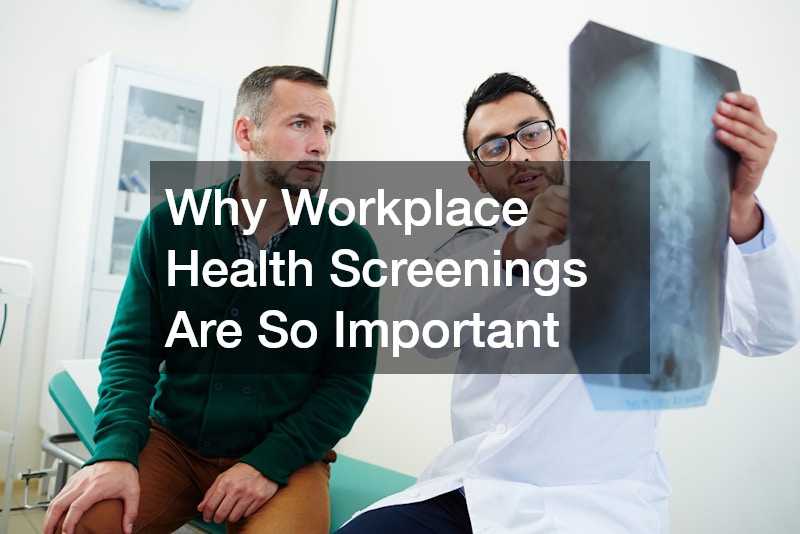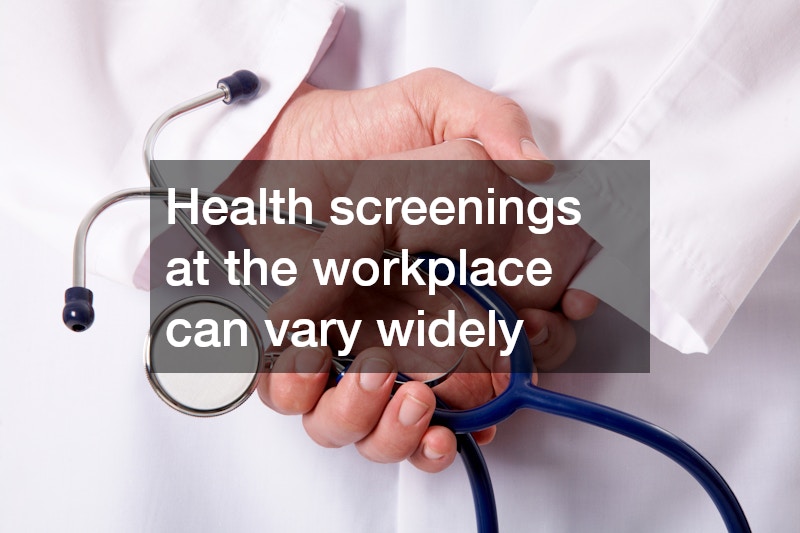Why Workplace Health Screenings Are So Important


Workplace health screenings are essential components of a comprehensive worksite health program. They provide invaluable insights into the collective and individual health status of employees, enabling employers to devise effective wellness strategies. Regular screenings can detect potential health concerns early, preventing them from escalating into serious conditions. In addition, these screenings foster a culture of awareness and responsibility towards one’s health among employees. Employers who invest in health screenings often reap significant returns, both in productivity and reduced healthcare costs.
Health screenings at the workplace can vary widely, from basic tests such as blood pressure and cholesterol checks to more comprehensive evaluations that include mental health assessments. By identifying health risks early, these screenings can guide interventions and support mechanisms tailored to employee needs. Early detection is vital, as it significantly increases the chances of successful intervention and management. Employees benefit too, as they gain access to vital information about their health, paving the way for informed health-related decisions. Thus, workplace health screenings serve as a proactive measure, ensuring a healthier and more engaged workforce.
The role of workplace health screenings extends beyond individual health; they also have organizational implications. Companies with robust health screening programs often witness enhanced employee satisfaction and morale. These programs reflect a company’s commitment to employee well-being, which can, in turn, boost job satisfaction and loyalty. Screening data also helps employers fine-tune their health programs and benefits packages, ensuring they meet the actual needs of their workforce. In short, investing in worksite health screenings not only benefits employees but also strengthens the organization’s overall health strategy.
The Economic Benefits of Workplace Health Screenings
Investing in worksite health screenings can lead to substantial economic benefits for an organization. By identifying health issues early, companies can reduce the frequency and severity of employee sickness, thereby lessening the burden of absenteeism on company productivity. When employees remain healthy and present, organizations can avoid the costs associated with temporary staffing and disruptions. Further, reduced absenteeism often translates into shorter project timelines and increased output. Over time, the cumulative effect of these savings contributes significantly to the organization’s bottom line.
Moreover, worksite health screenings can lead to reduced healthcare expenses for both employers and employees. By catching health issues early, these programs can mitigate extensive medical treatments and hospitalizations that tend to be more costly. Employers who offer health screenings often negotiate lower insurance premiums due to the lowered health risks. Additionally, employees with access to screenings and wellness programs tend to have fewer chronic health issues, reducing their out-of-pocket medical expenses. Therefore, the economic advantage of health screenings extends to individual employees as well.
In the long run, investing in employee health also reduces turnover rates, which can be a significant cost for organizations. Healthier employees tend to be more engaged and satisfied, reducing the likelihood of them seeking employment elsewhere. Lower turnover rates mean savings on recruitment, hiring, and training new employees. Companies also benefit from retaining institutional knowledge and maintaining continuity within their teams. Hence, worksite health screenings create a mutually beneficial scenario, with both employer and employee reaping the financial rewards.
Improving Employee Well-being through Screenings
Worksite health screenings serve as a fundamental aspect of comprehensive wellness programs aimed at improving employee well-being. When employees are screened regularly, they become more attuned to their health status and potential risk factors. This awareness often acts as a catalyst for adopting healthier lifestyle choices, such as balanced nutrition and regular exercise. Encouraging such behaviors enhances physical health, reduces the risk of chronic illnesses, and promotes mental well-being. The accumulation of these positive outcomes contributes to the overall health of the workforce.
Mental health is increasingly recognized as a critical component of employee well-being. Worksite health screenings that include mental health assessments can identify stress levels, depression, and other psychological concerns. With early intervention, employees can receive the necessary support and resources, such as counseling or stress management programs. Addressing mental health in the workplace leads to higher productivity, reduced absenteeism, and increased employee satisfaction. Consequently, companies that integrate mental health into their screening programs create a more balanced and supportive work environment.
Furthermore, regular health screenings empower employees to take control of their health, contributing to their overall sense of well-being. When employees are provided with health information and resources, they feel valued and cared for by their employer. This can enhance workplace morale and strengthen the employer-employee relationship. By fostering a supportive and health-conscious workplace culture, companies can improve the overall quality of life for their employees. Ultimately, a healthy and happy workforce is a driving force behind innovation, growth, and organizational success.
